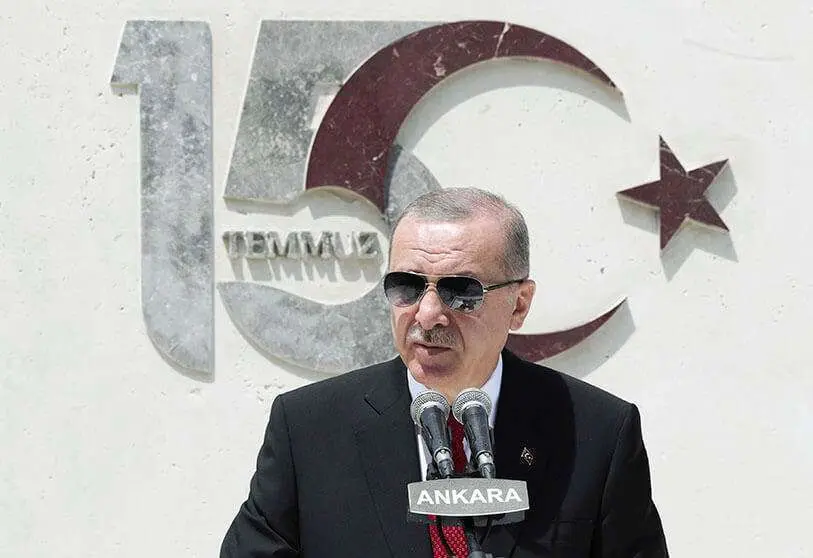Pandemic and geopolitical visions

The second wave of the coronavirus has come forward. It has similar characteristics and is being treated internationally with similar doses of concern and improvisation by governments and world leaders. Weak role of multilateral agencies, hasty and contradictory national measures, and a general increase in economic uncertainty. As several security experts and foreign services had predicted, the pandemic would bring with it a series of geopolitical consequences motivated by attempts to position or strengthen the interests of major powers and other actors to take advantage of the globalised crisis situation that was about to occur. During these months, the United States and China have made their positions regarding the Asian and global rivalry even clearer. But also in the Eastern Mediterranean, the Middle East, Africa and Central Asia, disputes of different nature, but with the same objective, are intensifying, as well as border and inter-power tensions. With some common diagnoses in all cases: the direct involvement of Turkey and also Russia in the dynamics; the partial involvement of other regional actors (Israel, Egypt, Saudi Arabia, Iran and European countries); and the alleged disengagement of the United States and China, if anything, indirectly 'leading from behind', as noted in the title of that Obama doctrine, so criticised a few years ago, when the Americans began their withdrawal from a region where they had been fighting for 16 years.
Erdogan's decision to convert Hagia Sophia into a mosque could then have been interpreted as a manifestation of the clash of civilizations. However, now the new paradigms are being built. No doubt it is intended to strengthen the Turkish image in the Mediterranean and African Islamic world. And, moreover, it provokes an evident tension between the Ankara government and the Orthodox and generally Christian Democratic countries, with Russia and Greece at the head, the former in front of NATO and the latter, like Turkey, within it. But the Greek-Turkish tensions have not been confined to cultural reasons and, on the commemorative days of July 20 and 24, they have moved to the waters of the Aegean and Cyprus where the Eastmed pipeline driven by Turkey and Israel would pass to transport the new gas and oil discovered in the eastern Mediterranean.
Turkey, once it has aborted the creation of an autonomous Kurdish political entity, a Kurdish Kosovo, as a culmination of the conflict in Syria and Iraq, has focused on Libya where the control of the ports and the country is disputed with Russians and Europeans. A strategy called neo-Ottomanist that seeks to expand its historical area of influence and compete with Egypt and Saudi Arabia not only in the Mediterranean, but also in the Red Sea. To this end, it has also recently installed a base in Somalia, and strengthened its relations also with Ethiopia and Sudan, among other reasons, to regain control of the island of Suakin in Sudanese waters. An attempt to which Russia reacted by supporting the Sudanese transitional government that overthrew Al-Bashir in 2019. Otherwise, the expansion of Turkish influence would have surrounded the Red Sea through the Horn of Africa with the possibility of intervening on issues such as the water of the Nile, energy transport, the movement of people, or the orientation of Islam in East Africa. And further, because Turkey's interest in Africa resulted in the opening of 30 new embassies and numerous cultural centres in a few years.
In recent days, still in the midst of the pandemic, there has been a reappearance of growing tension and border clashes between Armenia and Azerbaijan with dangerous threats and victims, so far redirected, but which has brought geopolitical uncertainty to Central Asia, an episode that is unclear but which puts Russia, Armenia's ally, and Turkey, close to Azerbaijan, back on the scene. In another territory where the Ottoman Empire dominated during the modern and contemporary age. And where Erdogan also aspires to increase his influence, aware that in a multipolar world the common destiny of China, Europe and Africa necessarily passes through the 'sublime door'.
This intense Turkish geopolitical activity is complemented by an important strategy of soft power and bi- and multilateral cooperation that has been praised by the Minister of Foreign Affairs, González Laya, during her recent visit to Ankara, where she highlighted the collaboration and support of the eastern ally in the worst moments of the pandemic. Likewise, investment and cooperation projects for the coming years have been intensified.
Spain and Europe have a historical and political relationship with Turkey that the new scenarios of the Mediterranean, Africa and the Middle East will have to readapt. Democratic principles, respect for freedoms and the balance of creeds and symbols must play a predominant role in these new relations. And also the direct link with security, the fight against terrorism and against human trafficking.

